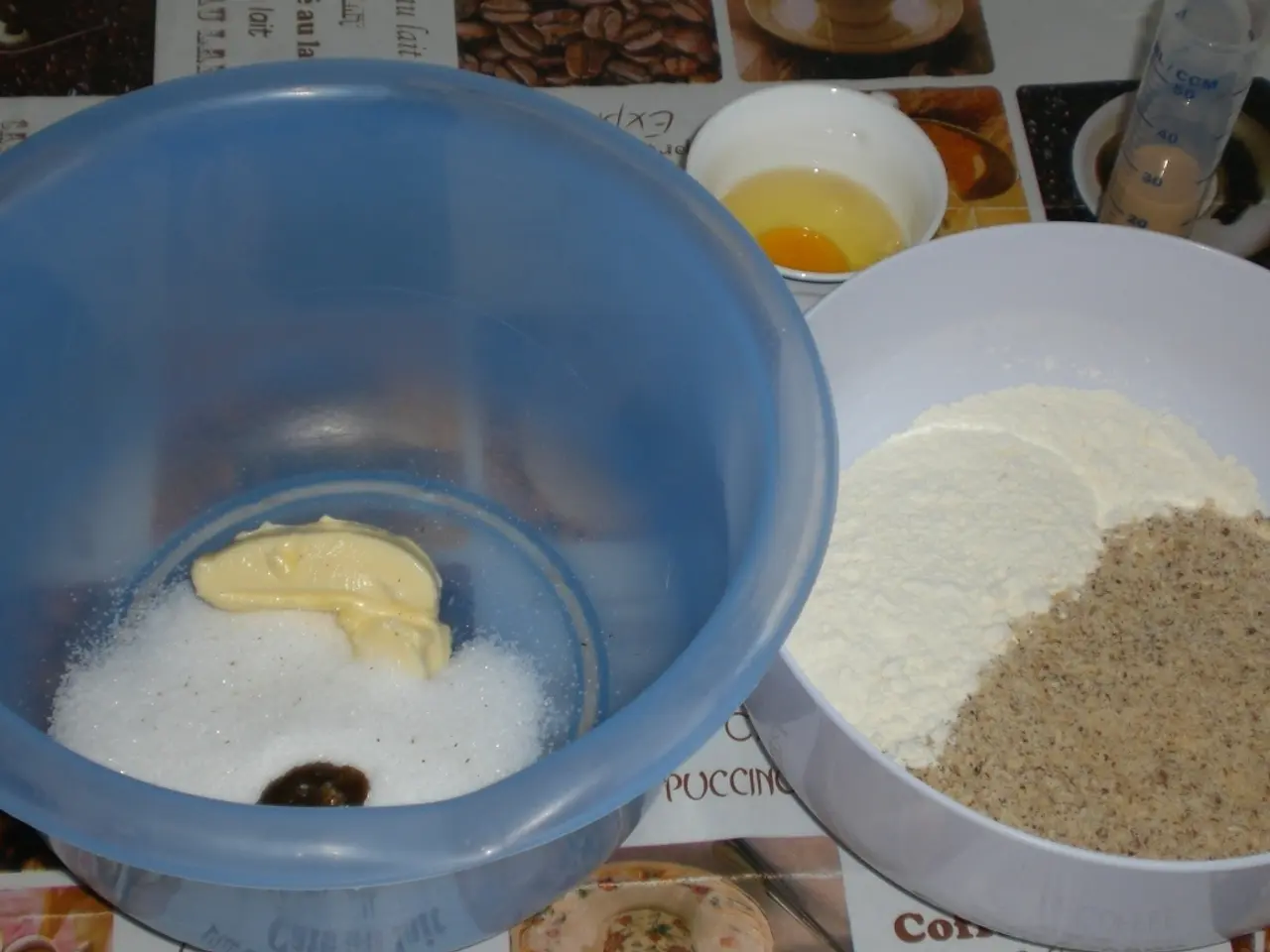Chronic intestinal issue characterized by abnormal bowel movements and hard stools: IBS with Constipation (IBS-C)
Navigating Irritable Bowel Syndrome with Constipation (IBS-C) can be challenging, but understanding the key treatment options and seeking professional advice can make a significant difference. Here's a breakdown of the common strategies for managing IBS-C.
Consulting with a Healthcare Professional
Before making any drastic changes to your diet, supplement regime, or lifestyle, it's essential to discuss these with a doctor. This is especially important if you are experiencing any persistent, recurring, or unexplained digestive symptoms.
Dietary Changes
A low FODMAP diet, which reduces fermentable short-chain carbohydrates, is often effective in reducing bloating and constipation symptoms. Foods like onions, garlic, apples, milk, and wheat-based products are common triggers. Personalized dietary plans, guided by nutritionists or gastroenterologists, improve effectiveness.
Fiber Supplements and Laxatives
Increasing fiber intake through supplements or laxatives is a common first-line treatment for constipation in IBS-C. These can support regular bowel movements.
Medications for IBS-C
- Linaclotide or plecanatide: These medications increase fluid secretion in the intestines, helping to make bowel movements more regular.
- Lubiprostone: Another drug that promotes intestinal fluid secretion and motility, easing constipation and associated pain.
- Prucalopride: A prokinetic agent prescribed when long-lasting constipation persists without a clear cause, it enhances colon motility.
- Tricyclic antidepressants (TCAs): These are sometimes used for abdominal pain relief, but caution is needed since they can worsen constipation and are considered second-line.
Stress Management and Psychological Therapies
Cognitive behavioral therapy and gut-directed hypnotherapy can benefit patients, particularly when symptoms are not controlled by medical treatments.
Tailoring Treatment to Individual Needs
Remember, IBS is highly individual, and what helps one person may not necessarily help another. It's important to try out different approaches one at a time to see what is effective.
Additional Considerations
- Antispasmodics may help reduce painful cramping by relaxing the muscles in the intestines.
- Stool softeners and fiber supplements may help make it easier to have bowel movements.
- Treating other conditions, such as SIBO, a motility disorder, or a mental health condition, may have a positive effect on IBS.
In summary, IBS-C treatment involves dietary strategies (notably low FODMAP diet), fiber and laxatives as a baseline, then targeted medications like linaclotide or plecanatide if needed, with attention to symptom management and psychological support when appropriate. Always consult a gastroenterologist to tailor treatment to individual symptoms and medical history.
- A healthcare professional should be consulted before making any changes to one's diet, supplement regime, or lifestyle, especially when experiencing persistent digestive symptoms.
- A low FODMAP diet, which reduces fermentable short-chain carbohydrates, can help reduce bloating and constipation symptoms in those with Irritable Bowel Syndrome (IBS).
- Personalized dietary plans, guided by nutritionists or gastroenterologists, increase the effectiveness of managing IBS symptoms.
- Incrementing fiber intake through supplements or laxatives is often the first-line treatment for constipation in IBS.
- Linaclotide or plecanatide are medications that increase fluid secretion in the intestines, helping to make bowel movements more regular for IBS patients.
- Lubiprostone is another drug that promotes intestinal fluid secretion and motility, making it easier for IBS patients to have bowel movements.
- Prucalopride, a prokinetic agent, is prescribed when long-lasting constipation persists without a clear cause, as it enhances colon motility in IBS patients.
- Tricyclic antidepressants (TCAs) may be used for abdominal pain relief, but they can worsen constipation and are considered second-line treatments.
- Cognitive behavioral therapy and gut-directed hypnotherapy can benefit IBS patients, particularly when symptoms are not controlled by medical treatments.
- Treating other conditions, such as mental health disorders, skin conditions like psoriasis, chronic medical conditions like chronic kidney disease, respiratory conditions, eye health issues, and ensuring proper nutrition, may have a positive effect on managing IBS symptoms.




